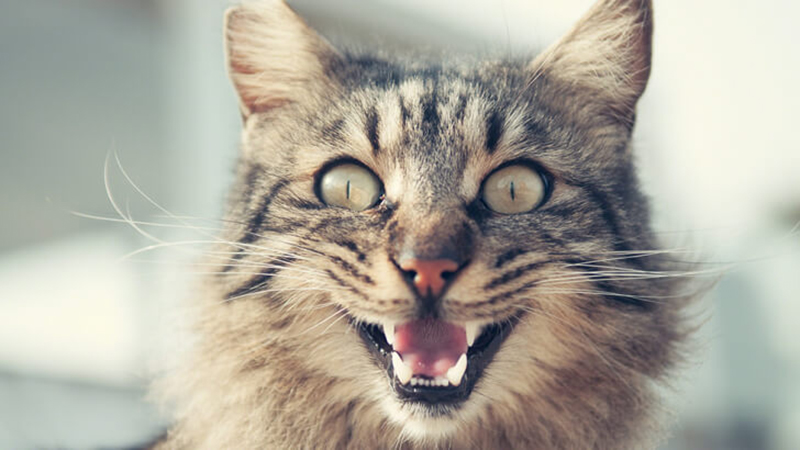
As any pet owner will know, you develop a distinct emotional bond with your animal companion of choice. You chat with the dog, remonstrate with the hamster and tell your parakeet secrets you would never tell anyone else. And, while part of you suspects that the whole endeavour might be completely pointless, another part of you secretly hopes that somehow your beloved pet understands.
But what, and how much, do animals understand? For instance, you know that an animal is capable of experiencing pleasure, but do they experience humour? Can your furry love-bundle understand a joke or stifle a guffaw when you drop a heavy item on your toe? Do dogs or cats or any animal laugh in the same way that we laugh? Why do we laugh? The reasons that human beings developed laughter is something of a mystery. Every human on the planet, regardless of the language they speak, does it and we all do it unconsciously. It just bubbles up from deep inside us and we can’t help it happening. It’s contagious, social and something we develop before we can speak. It’s thought that it exists to provide a bonding element amongst individuals, while another theory states it initially originated as a warning sound to highlight the incongruous, like the sudden appearance of a sabre-tooth tiger. So, while we don’t know why we do it, we do know we do it. But do animals giggle, and if not, why not?
Cheeky monkeys Understandably as they’re our closest animal relations, chimpanzees, gorillas, bonobos and orang-utans vocalise enjoyment during chasing games or when they are being tickled. These sounds mostly resemble panting, but interestingly the apes that are more closely related to us, like chimps, display vocalisations most readily identifiable with human laughter than a more remote species like the orang-utan, whose mirthful noises least resemble ours.

The fact that these sounds are emitted during stimulus such as tickling suggests that laughter evolved before any sort of speech. It’s reported that Koko, the famous gorilla that used sign language, once tied her keeper’s shoelaces together and then signed ‘chase me’ displaying, potentially, the ability to make jokes.
Crowing crows But what about a completely different branch of the animal world like birds? Certainly a few clever avian impersonators such as mynah birds and cockatoos have been seen to mimic laughter and some parrots have even been known to tease other animals, with reports of one bird whistling at and confusing the family dog, purely for its own amusement. Crows and other corvids are known to use tools to locate food and even pull the tails of predators. It was thought that this was purely to distract them while stealing food, but now it’s been witnessed when no food is present, suggesting the bird did it just for fun. So it’s possible that some birds have a sense of humour, and may even laugh, but we haven’t been able to identify it yet.

Beastly humour Other creatures are also known to laugh, such as rats, who ‘chirp’ when tickled in sensitive areas like the nape of the neck. Dolphins appear to emit sounds of joy while they are play-fighting, to suggest the behaviour is non-threatening to those around them, while elephants frequently trumpet whilst engaged in play activity. But it’s virtually impossible to prove whether this behaviour is comparable to a human’s laughter or just a noise that the animal likes to make during certain situations.

Pet hates So how about the pets in our homes? Are they capable of laughing at us? There is evidence to suggest that dogs have developed a kind of laugh when they are enjoying themselves that resembles a forced breathy pant that is different in sonic texture to the regular panting used to control temperature. Cats, on the other hand, were thought to have evolved to show no emotions at all as a survival factor in the wild. Obviously purring can indicate that a cat is content, but purrs and mews can also be used to indicate a number of other things.
Cats also appear to enjoy engaging in a variety of mischievous behaviours, but this could be merely an attempt to attract attention rather than showing off their humorous side. And so, as far as science goes, it seems that cats are incapable of laughter and you can be comforted to know that your cat isn’t laughing at you. Though, if they did ever acquire the ability to do so, we suspect they would.
This article comes from BBC news.
Post time: Oct-19-2022

